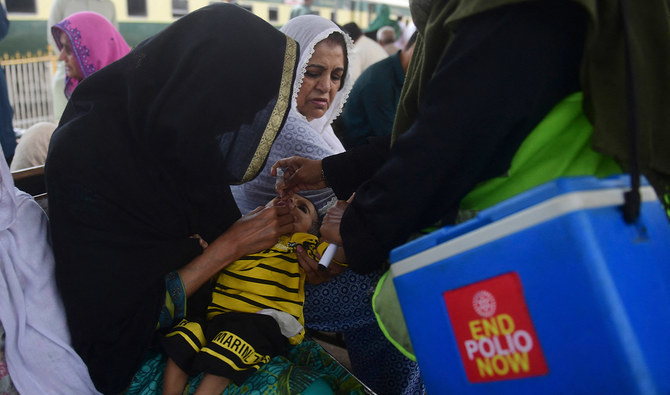ISLAMABAD: Pakistan will launch an anti-polio drive in three Pakistani provinces on Monday with an aim to inoculate approximately 20 million children, Pakistani state media reported, citing the country’s health authorities.
Polio is a highly infectious disease caused by poliovirus mainly affecting children under the age of ten years. It invades the nervous system, and can cause paralysis or even death. Pakistan and Afghanistan are the only two countries in the world where polio continues to threaten the health and well-being of children.
Authorities have constituted thousands of teams of anti-polio vaccinators to administer vaccines to children in Khyber Pakhtunkhwa, Balochistan and Sindh provinces, the state-run Radio Pakistan broadcaster reported.
“In Khyber Pakhtunkhwa, more than 7.4 million children up to five years of age will be administered polio drops during the campaign. Thirty-one thousand teams have been constituted to vaccinate the children,” it said, citing the Emergency Operation Center for polio.
“Likewise, in Balochistan, more than eleven thousand teams have been constituted for the door-to-door vaccination drive to inoculate 2.5 million children up to the age of five years.”
In the southern Sindh province, more than 80 thousand polio workers will administer the vaccine to over 10 million children of up to 5 years of age in 30 districts of the province, according to the report.
The Sindh chief secretary has directed the health department to ensure that children are administered polio drops at all railway stations and bus terminals as well.












